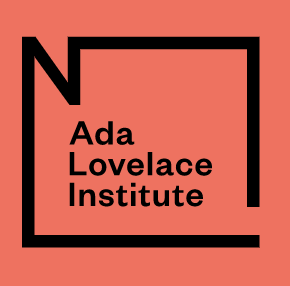Ada Lovelace Institute Visiting Senior Researcher in Education and AI

The Ada Lovelace Institute is hiring a Visiting Senior Researcher to undertake a research project on education and AI.
Salary: Starting from £43,000 – £47,000 pa (based on experience).
Hours: 35 hours per week.
Contract: 18 month fixed term contract.
Location: Our offices are in London (Farringdon), with the ability to work from home for part of the week.
Our benefits package includes:
- 28 days holiday per annum and all public holidays (with the option to buy or sell up to 5 days)
- pension scheme that offers employer contributions of up to 11%.
- life assurance scheme
- family leave policies that provide an enhanced level of pay
- cycle to work scheme and loans towards season tickets
- opportunities for learning and development
- wellbeing support including an employee assistance provider.
Closing: 9:30am, 27th October 2022 GMT
Job description
The Nuffield Foundation and the Ada Lovelace Institute (Ada) are hiring a Visiting Senior Researcher to undertake a research project exploring the impacts of the emerging use of AI and data-driven technologies in the UK’s education system, and the implications of this for policy, practice and society as a whole.
The role
The role of Visiting Senior Researcher provides an excellent opportunity for a mid-career researcher to craft and execute a research project in a dynamic and energetic policy-facing organisation.
This is a new position created as part of the respective strategies of Ada and the Nuffield Foundation. Education is the largest of the Nuffield Foundation’s three domains (the others being welfare and justice) and a priority for the Foundation in this area is understanding how harnessing digital technologies might improve teaching and learning, parental engagement, and child development.
In the past decade, there have been profound changes in the use of data in education, and in the use of technologies for teaching and learning (the latter accelerated somewhat by the COVID-19 pandemic including expectations of hardware and platforms). Data-driven technologies have been integrated across education systems with the aims of closely tracking pupil performance, achieving efficiencies, standardising approaches and liberating teacher time and capacity. Physical devices such as tablets, cloud-based apps for collaborative working and communication, classroom management tools, automated grading and performance management tools are increasingly common. In some countries, Virtual and Augmented Reality, and AI-generated content are being deployed in schools or used by students in search of extra-curricular learning or in teacher training.
The education technology (EdTech) industry is significant; it was worth more than USD$200 billion in 2020, and is set to grow significantly year on year, spurred on by the dramatic expansion of online learning as a result of the pandemic. The Department for Education in England has established a focus on EdTech, and has invested centrally in the sector including via a network of ‘Demonstrator’ schools and colleges. However, private investment is just as significant as public investment. In the first quarter of 2020, EdTech companies saw VC investment grow by 22%. The Chan-Zuckerberg Initiative and Bill and Melinda Gates Foundation identified AI as an educational tool worthy of investment, and Chinese company Squirrel AI has attracted the investment and admiration of Silicon Valley executives. Squirrel AI opened a joint research lab with Carnegie Mellon University in 2019 to study personalised learning through AI.
Much has been made of the promise of AI and data-driven technologies to expand the reach of education across socio-economic and geographic boundaries, free up teachers to pay more dedicated attention to children and deliver more personalised education. Yet these are primarily projections and aspiration that at this early stage lack rigorous empirical evidence. In reality, the use of AI in education is a live experiment, and no one can yet predict the outcome. More generally the expenditure on technology needs to be considered alongside the opportunity costs in the wider context of public spending on education.
The digitisation and automation of teaching and learning prompts a return to profound questions about the very nature of education. What is the fundamental role of education and to what extent can it be divorced from human interaction and social engagement? Against what standards might we judge a successful education system? What works and what doesn’t work when it comes to learning, what contributes to education being effective, and how do we measure that? Does digitisation and automation put the learner more or less in charge? How will or should AI change the role of the teacher and could it in fact be positively transformational in that respect?
These questions intersect with ethical and societal concerns which arise with the introduction of AI and autonomous systems. What are the implications of the datafication of education for children’s privacy and autonomy? Will the introduction of AI narrow or widen inequalities in education that currently existing in a number of dimensions? Will AI that is designed to use increasingly granular data for personalisation or differentiation further entrench the existing problems of an assessment-driven approach to education?
The successful applicant should expect to work closely on this project with the wider Ada team. Ada’s methodologies include the use of working groups and expert convenings, public deliberation initiatives, desk-based research and synthesis, policy and legal analysis and translation, and ethnographic research. We welcome new kinds of expertise and methodologies into our team. We prioritise outputs that are aimed at engaging different publics and do not generally produce academic publications so the researcher will need to marry technical credibility with compelling framing arguments. The Visiting Senior Researcher is expected to produce and execute a novel, achievable, and high-impact research agenda, with generalisable findings that have international reach beyond the UK.
About you
You are an experienced researcher or professional who may have a background researching for an academic organisation, policy department or a regulator, a tech company, research institute or charity. You are curious and passionate about the issues which arise at the intersection of technology and society, and are committed to bringing an interdisciplinary and intersectional lens to understanding them. Importantly, you’ll be comfortable taking initiative, working independently and to short deadlines at times.
You’ll enjoy working in a team environment, willing to jump into projects and keen to explore areas of policy, technology and practice that you don’t already understand. You’ll appreciate the importance of exceptionally high standards of rigour in research, but also want to think creatively about communicating and influencing in novel ways.
For further information about the role, please download the full job description.
How to apply
To apply, please click through to beapplied.com where you will be required to complete some questions as part of this application process, and you are also required to upload an up-to-date copy of your CV. The Applied platform lets you save an application and resume it ahead of submitting before the application deadline.
The closing date for applications is 09:30am (BST) on Thursday 27th October 2022, with interviews taking place on Wednesday 9th November 2022.
Should you need to make an application in a different format or require any adjustments as part of the application process, please get in touch with us via: recruitment@nuffieldfoundation.org
We strongly encourage applicants from backgrounds that are underrepresented in the research, policy and technology sectors (for example those from a marginalised community, those who did not go to university or had free school meals as a child). We are committed to tackling societal injustice and inequality through our work, and believe that all kinds of experiences and backgrounds can contribute to this mission.
